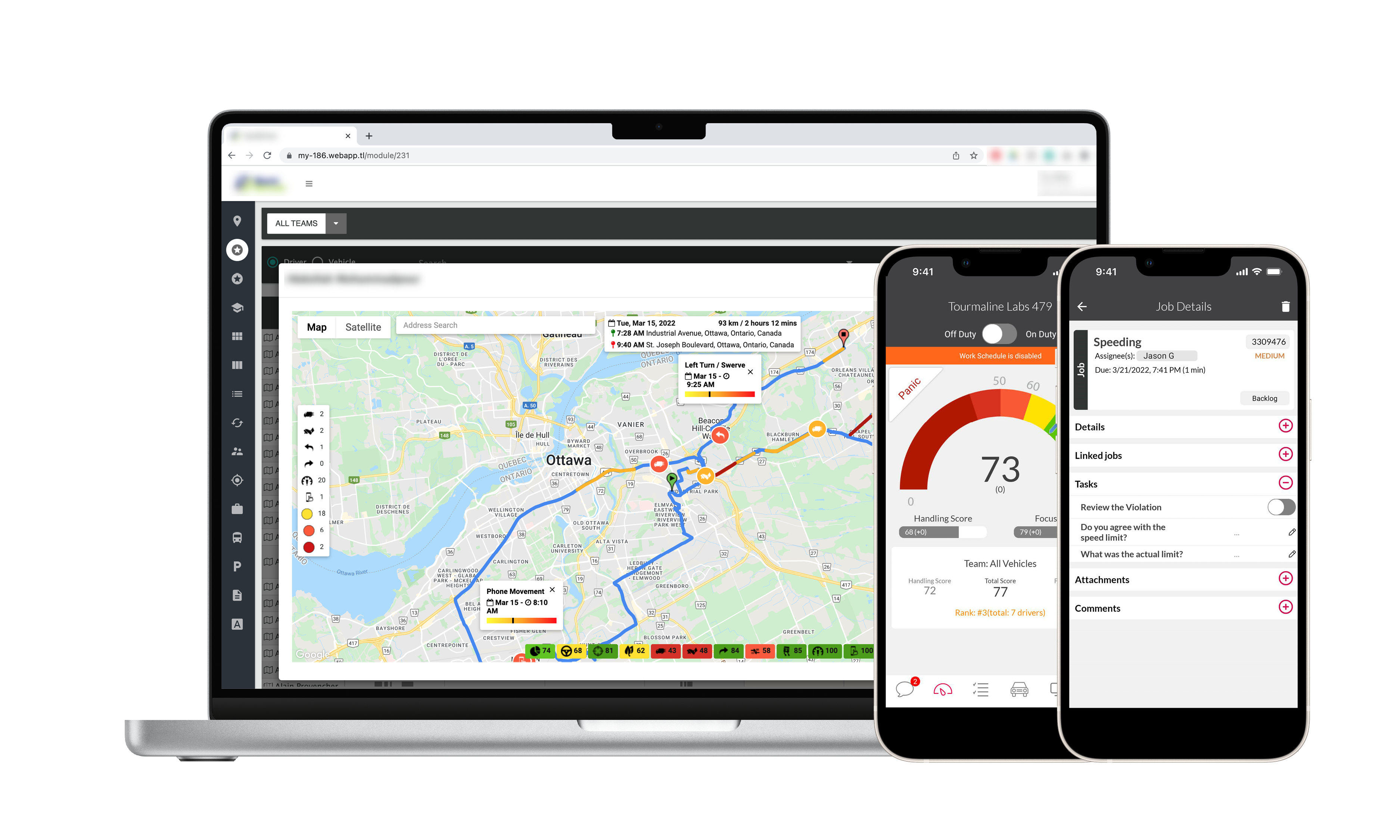In-House vs. Outsourced: How to Decide Which is Best for Your Company’s App Development


Your company has decided to develop a mobile app but you aren't sure whether to build it in-house or outsource the project to an app development company. You want to make an informed decision as you’ll be investing lots of time and money. This decision is critical because the quality of the app will determine how much value it brings to your workforce, clients, brand, and company. As the old saying goes… “If you don’t have time to do it right, when will you have time to do it over?” You want to nail the development of your app the first time around and not cause your employees or customers any headaches with bugs, glitches, or backend issues.
You, along with many other companies, are faced with two choices:
- Develop your mobile app in-house
- Outsource to an app development company
There are pros and cons to each of these paths. At the end of the day, what matters most is what works best for your enterprise. We have developed a list of pros for both choices so that you can make an informed decision that best benefits your business.
Outsourcing
Putting the creation of your company’s mobile app in the hands of professionals may be the easiest and most risk-free path to take. Outsourcing app development saves time, money, and headache on your end of the bargain. With this option, you can sit back, relax, and have your perfect app created for you.
Pros
-
Established team chemistry
Outsourcing ensures that the development team is already well integrated and has already worked together on multiple projects. Prior experience working together means that positive chemistry has already been established, saving time and ensuring an efficient and productive process. The only “new guy” in the situation will be the project manager, who will serve as a liaison between your company and the development team.If you decide to develop your app in-house, you will need to bring a development team together. Even if your company already has employees with experience in this area, you will most likely have to bring in new people to fill the gaps. It is likely, these new recruits have never worked alongside your current team, so growing pains may be a natural part of acclimating to one another. Transitioning a new team can be a bumpy process with new personalities, conflicting ideas, and different strengths and weaknesses. Hiring experts to join your in-house team can be a long and expensive process. Not only do you need to spend time finding qualified individuals who fit well into the company, but also on their onboarding process. In addition to being time-consuming, they will need to be set up with HR and payroll which can be extremely costly.
-
Experts in the Field
By outsourcing the development of your company’s mobile app, you can ensure that it is built by those who specialize in the process. We use this strategy in everyday life: you wouldn't go to a doctor to get your haircut or a chef to do your taxes. Not to say those professions could not accomplish those tasks, you just wouldn’t seek them out if you were looking for the best results. Specialists have a superior understanding of their craft as opposed to a generalist. A lack of expertise in the in-house team can lead to extra costs and time delays. App development agencies have more knowledge on the topic, so it follows that they can best execute the project. They are typically fluent in iOS and Android development.
An esteemed development company will use a variety of different strategies to get a better understanding of your company’s individual needs and business goals. These may include knowing mobile app requirements, your company’s primary goals, and the app’s priority features. Due to their specialization in the field and expert strategy, development teams can leverage their extensive knowledge and experience in the field to produce the best possible mobile app experience for your company and end-users. Another benefit of engaging with a SaaS (Software as a Service) contract, is that even after your app is developed, your company will continue to benefit from new features that they can continue to install. Plus, the two companies can maintain a lasting relationship and work on future projects together.
- Less Investment
As stated previously, when you outsource app development, you are putting the task in the hands of a company that specializes in the process. This isn't their first rodeo. A good app development company will have all the certificates, software, office setup, and foundational equipment that is needed to construct the perfect app.If you choose to develop your app in-house, you may need to invest in new people, new software licenses or certificates for proper app development. The cost could also spike if your team is not well versed in the challenges of mobile app development, meaning you would have to hire experts to solve specific and ongoing challenges. Onboarding new employees can be an expensive process as well as paying for HR costs, making outsourcing even more cost-effective in the long run.
By outsourcing, your company only needs to pay for the app development itself. Other than that, it is the responsibility of the development team to deal with the project and address any challenges that arise.
-
More Productive
When you outsource the development of your company’s mobile app, you don’t have to use the time and energy of your company’s employees. Your company is a working machine and growing every day. You don’t have time to take on a new and foreign project because your job requires your undivided time and attention. When you stay in-house you have full control which means full responsibility. Creating and overseeing a development team is a full-time job in itself. By outsourcing, you can better use your time and energy to manage other aspects of your business. -
Fewer Risks
In terms of risk, outsourcing your company’s app development is completely different than building it in-house. There is a lower risk with outsourcing because there is less of a chance that your app will fail. By making sure you hire experts in app development, you are ensuring that they have extensive experience, understand requirements, and have a deep understanding of market trends.
Additionally, there is less risk in outsourcing because it is guaranteed that those who will be working on the project have an excellent track record. They typically have portfolios to view before hiring as well. So make sure to review the work they’re done for other companies and check the endorsements they have from them.
In-house
Many who are developing their company’s mobile app in-house do so because they believe it is the most cost-effective and easiest way to keep control over the process. However, it may not be as easy as you’d think. Although the parent company oversees the in-house team, they don’t always have full control over the development operations. Keeping app development operations in-house can be a great option, but only if a long-term strategy, the right technical resources are available, and budget are in place.
Pros
- In-house personnel automatically have a good understanding of company needs
A development team that already works with your company will have more insight than an outsourced team that you have never worked with before. They can hit the ground running with prior knowledge of your company’s target audience, history, politics, competitors, and goals.
Outsourced companies will need time and collaboration to get the full picture of what your company is and how they can best help. When looking for a development team, make sure they are willing to put in the effort to learn about your company. The deeper the knowledge they have of your customers, goals, and vision, the better they can develop your ideal mobile app.
- Direct communication to the in-house team means no communication gap
Deciding to develop your company’s mobile app in-house means that there is much less of a communication gap between you and the development team. Since the app development team will be working at the company location, it will be easy to communicate with them and check if everything is on track the way you want it. This way, the entire app development process takes place right in front of you. This up-close visibility enables you to ensure that the app will be created within a specific time and cost boundaries. However, this may not be the case for larger companies with multiple offices. - Faster sign offs and approvals
Although this is not always the case, approvals typically occur at a faster pace if those involved are all under the same roof. When you outsource to a development company, sign offs can be fast, but it requires full commitment from both the developers and the client. Both parties must be dedicated to keeping close and prompt communication. A good development company will ensure that a project schedule is laid out so that approvals happen without delays. - Flexible revisions
One of the largest benefits of developing your company’s app in-house is how flexible revisions are. The problem with this is that you can fall into the trap of spending too much time tweaking, modifying, and second-guessing decisions. This will delay meaningful progress.
When you outsource, there is usually a specific budget therefore specific constraints. In contrast, an in-house team is usually on payroll, so there are no financial consequences if a decision can’t be made or is delayed. Consequently, there may be issues with launching the app on time.
Which Path Will You Take?
Many companies’ final decisions depend on the current market, the cost factor, and their willingness to take risks. When you compare hiring an app development team vs. building the app in-house, it is clear to see how different options will work for different companies. What works best for your company may not be a good fit for others. Outsourcing your company’s mobile app development is typically a more cost-effective, time-saving, and risk-free approach Outsourcing is an especially smart choice for companies who don't have much time and money to invest in developing an app with an in-house team.
Luckily for the indecisive out there, you are not required to pick one or the other when it comes to launching your mobile app. The decision does not have to be black and white (100% in-house vs. 100% outsource). There are hybrid approaches, where companies can leverage existing SDKs and open platforms. A software development kit (SDK) is typically a set of software development tools that allows the creation of applications for a certain software package. In the transportation world, companies that want to create a driver app can start with a fully functional and bulletproof SDK which collects location, driving behavior and even includes workflow and task management. You can focus on the User Interface (UI) and integrating the App with other departments such as HR for Payroll, scheduling, etc.
Alternatively, you can start to pick a software development company that offers an open platform. These development teams offer a white-label app that displays, your colors, look, and feel. This way your app is ready to get on the market fast. If you work with a development company that offers a marketplace, you can develop unique models of your app.
Now that you know the benefits and risks of in-house vs. outsourced app development, you are well on your way to making the best decision for your business and launching your next great app idea!
Tourmaline Labs is an AI Mobility company that works specifically with businesses that employ large fleets, remote drivers, or field workers. We specialize in developing mobile apps that help boost workflow, task management, safety and communication. Our device-agnostic, modular, flexible and open platform allows companies to pick what components best fit their needs. To find out more about how you can work with Tourmaline Labs to create your company’s ideal app or to get more information on how we can help integrate with your current app click here.
Share this article:
Tourmo


.jpg?width=352&name=tourmo-featured-image%2045(1).jpg)

